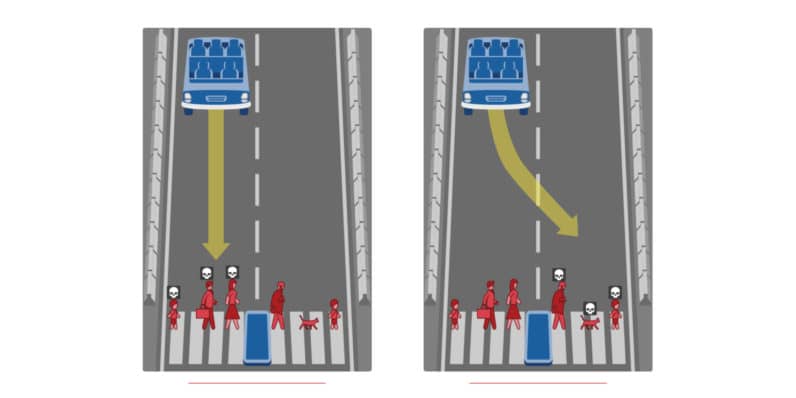The ‘Trolley Problem’ is a significant ethical dilemma in which you need to kill one person to save another. A team of researchers from MIT recently applied the phenomenon to the self-driving cars. The team posted a series of questions to more than 2 million online participants from more than 200 countries. The results showed some regional preferences, however, the overall consent was apparent which put animals, the elderly, and small groups of people at risk.
British philosopher, Phillippa Foot in 1967, invented the Trolley Problem. It uses hypothetical scenarios within extreme environments to test the utilitarian and Aristotlean ethics. The most common version of the problem is of a driver of a trolley who is forced to decide between staying on his track and killing five people or switching tracks and killing only one. For the study, the researchers at MIT’s Moral Machine created 13 scenarios which involved self-driving cars in an urban setting. The self-driving industry has debated the issue debated on the subject for many years. The latest addition of study is offering up something which is easily understandable by the computers, i.e., big data.
Edmond Awad, a postdoc at MIT Media Lab and lead author of the paper said that the researchers found three elements that people seem to approve the most. These were;
- Cautious about the lives of humans over the lives of animals
- Cautious about the lives of many people rather than about some
- Cautious about the lives of young people over the old ones
The popularity of the Moral Machine shows that people all over the world are interested in taking part in the debate around self-driving cars and want to see the algorithms which reflect their personal beliefs. Iyad Rahwan, an associate professor of media arts and sciences at the Media Lab who has worked on the study said, “On the one hand, we wanted to provide a simple way for the public to engage in an important societal discussion. On the other hand, we wanted to collect data to identify which factors people think are important for autonomous cars to use in resolving ethical tradeoffs.”He further added, “What we have tried to do in this project and what I would hope becomes more common, is to create public engagement in these sorts of decisions.”

